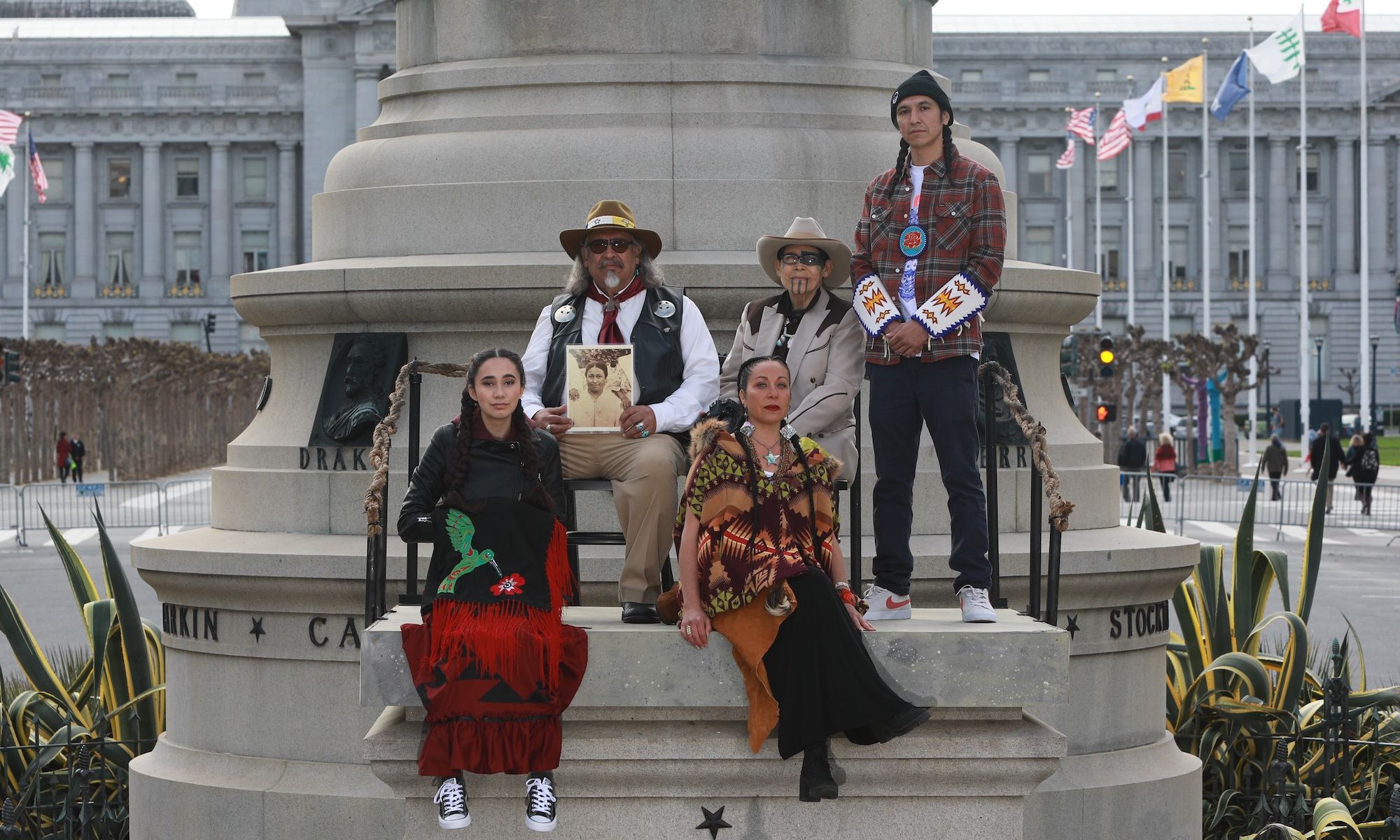Visual Artists—The Continuous Thread: Celebrating Our Interwoven Histories, Identities and Contributions” 2019. Photo: Hulleah Tsinhnahjinnie. Courtesy of the San Francisco Arts Commission
As cultural dialogues on the role that public sculptures play and the often one-sided narratives they depict continue to evolve across the US, the Andrew W. Mellon Foundation has announced the next stages of its ongoing Monuments Project, a five-year $250m grant initiative that hopes to fund public artworks across the nation that “more completely and accurately represent the multiplicity and complexity of American stories”, according to the foundation.
Nine grants totalling $25m will be awarded directly to municipalities across the country this summer on behalf of the Monuments Project, bringing the total funds awarded thus far to nearly $152m, over half of the total $250m that will be dispersed over the project’s life-span. This summer, money will be awarded to support projects throughout Asheville, North Carolina; Boston; Chicago; Columbus, Ohio; Denver; Los Angeles; Portland, Oregon; Providence, Rhode Island, and San Francisco. This brings the total number of grantees thus far to 67.
“Our history is the story of many different people living in glorious complexity, but we’ve been over-taught just one side of that story,” Elizabeth Alexander, the president of the Mellon Foundation, told The Art Newspaper in 2020, when the initial concept for the grant was first announced. “I joined the foundation with many years of teaching African-American literature and culture—always grounded in a historical context—and I’ve been thinking about our commemorative landscape in that same context for a long time.”
In just the year 2020, over 160 Confederate monuments alone were removed from public spaces throughout the country, while over one hundred further monuments and memorials perceived as celebrating white supremacy were taken down that same year—either toppled by protestors or removed by city officials. Many of these were transferred by their respective local governments to museums or storage spaces, and a dialogue has continued to unfold about what should be done with the empty plinths and vacant public space where these once stood.
The first grant issued under the Monuments Project was a three-year $4m stipend to support the Philadelphia-based non-profit Monument Lab, which said it will put the grant money toward “a definitive audit of the nation’s monuments” in addition to expanding its research offices and hiring its first full-time staff. Public works funded by the grants can also be seen in Juneau, Alaska, in a series of totem poles that comprise part of the public Kootéeya Deiyí (Totem Pole Trail) along the downtown waterfront.
Projects vary widely amid the nine newly announced grant-getting municipalities. Included among the new efforts, the city of Asheville will be redesigning portions of its Pack Square Plaza to better represent the city’s multicultural history; while both Portland, Oregon and Denver will use parts of their funds to support community engagement and policy development regarding what to do with public monuments that were toppled or removed in 2020; and Los Angeles will use its funds to help construct a memorial to the victims of the city’s rarely-discussed 1871 Chinese Massacre.
“There are few things more important than knowing our full history, including, and maybe especially, when that history involves violent injustice, hidden out of sight," Karen Bass, the mayor of Los Angeles, said in a statement. "The city is taking these steps to honour the victims of the 1871 Chinese Massacre in order to better understand our past and build a better future. This important chapter in our history, long clear to our neighbors of Chinese descent, will now be known and considered by all Angelenos.”

